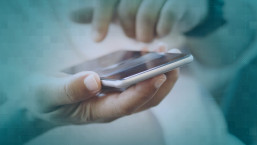Want to be safer online using your laptop or tablet when using public Wi-Fi? You can. Here are our five essential tips.
1 First, if you are not going to use the Internet it’s a good idea to turn off Wi-Fi connectivity completely on your laptop, smartphone or tablet. You are then guaranteed that your device cannot be accessed by hackers. It’s easy to do this in the Settings menu on an iPad or Android tablet and the Network settings in Mac and Windows laptops.
2 Don't be tempted to join a wireless network that purports to be “public” or “free” in the list of available networks that come up when you look for a network, unless you know are sure it is legitimate. Rogue networks may be set up as free Wi-Fi by hackers or cyber criminals looking to steal data from your laptop. You may get online through one of these networks but behind the scenes the rogue network will be sniffing your device for personal details, financial information or anything else scammers deem worth stealing.
Scammers will sometimes set up rogue networks with names very similar to genuine networks to fool you. To be sure, ask for the official name from the management of the location or the official venue literature. Large hotels and other major establishments are sometimes targets of criminals who try to get you to download software when using hotel networks.
3 Regardless of where you connect from, unless your device tells you that the Wi-Fi network you are on is encrypted, all the data you send and receive will be unencrypted, meaning your passwords, email messages, and other information will be visible to hackers.
4 If you have to connected on an unencrypted or unfamiliar network, avoid doing anything on your device that you wouldn’t want to anyone else to see. Avoid online banking, personal shopping or accessing confidential company details. Don't use email unless it is over an https connection (webmail access via https). Stick to simple web surfing if you do not have any extra protection built in to your device.
5 Of course, most people will want to do much more on the road. That’s where a Virtual Private Network (VPN) comes in. Essentially it provides an encrypted secure “tunnel” into the internet from your device. Traffic sent through the VPN connection stays isolated from other computers on the intermediate network. Many business users will have VPN software provided to them by their employers. For consumers, VPN can be installed both for Macs and Windows laptops. Some operating systems such as Mac OSX and Windows 7 allow you to configure a VPN right within the OS. Some Wi-Fi operators can also provide a personal VPN to download which is much easier. With a little expertise a VPN can be configured to be as as secure as you want.
6 Finally, but by no means least, make sure you have up to date, effective antivirus (AV) software on your laptop or mobile device. No user should take a device into “the wild” without such protection these days. Not only will it catch and neutralize malware, some AV products will also provide a cost effective and easy to configure personal firewall that adds an extra layer of protection from the probing of Wi-Fi hackers.




